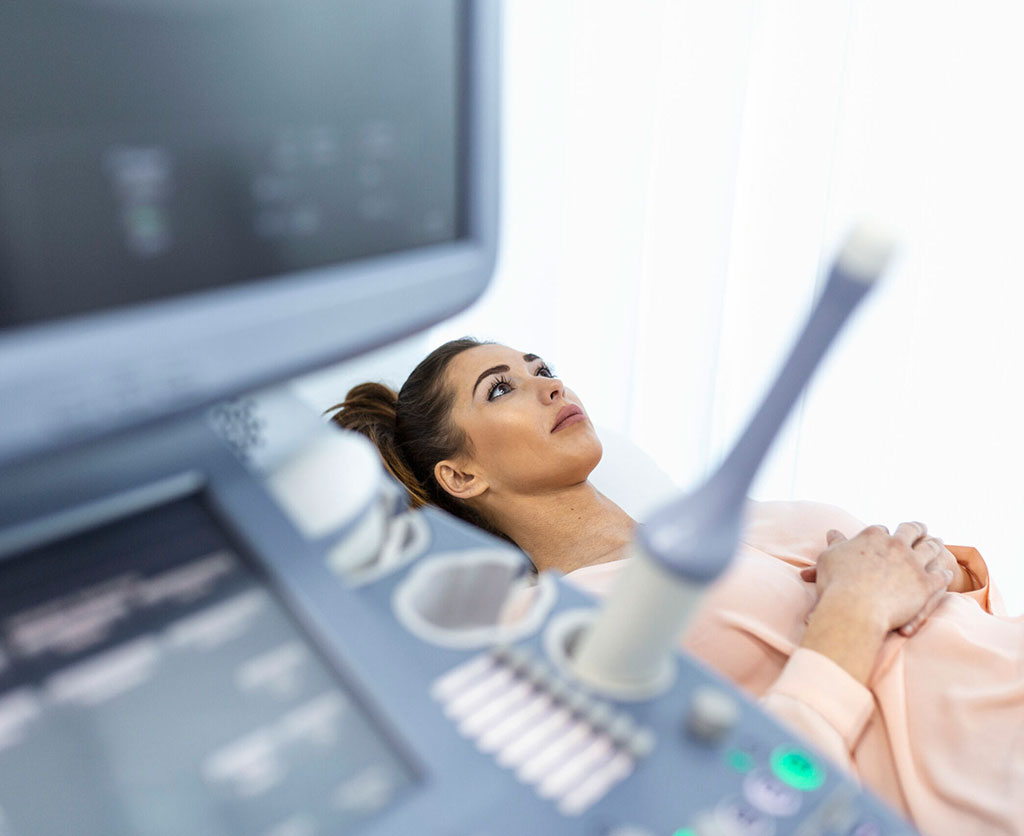AI Accurately Identifies Breast Cancer Using Low-Cost Portable Ultrasound Machines
Posted on 04 May 2023
Breast lumps are often discovered unintentionally during breast self-exams or medical professional examinations. Breast cancer screening can detect cancers before a lump becomes palpable. While cancer screening is emphasized in Western countries, low- and middle-income countries frequently lack access to organized screening programs and technology. In these countries, breast cancer is typically identified as a palpable lump. Ultrasound can significantly contribute to early detection, leading to more effective, less invasive treatments and improved outcomes. A new study has discovered that artificial intelligence (AI) can analyze breast mass images from low-cost portable ultrasound machines and accurately identify cancer, which could be beneficial for triage in resource-limited settings.
In a multicenter study, researchers at the University of Pittsburgh School of Medicine (Pittsburgh, PA, USA) enrolled participants with at least one palpable breast lump. Portable ultrasound machines were used to obtain images of the lump site and adjacent tissue, followed by standard-of-care ultrasound imaging. A radiologist performed Breast Imaging-Reporting and Data System (BI-RADS) assessments. After exclusions, the AI software analyzed 758 masses in 300 women (average age 50.0 years) as benign, probably benign, suspicious, or malignant (cancerous). The average age of the participants ranged from 18 to 92 years, and the mean largest lesion diameter was 13 mm (range 2-54). Out of 758 masses, 360 (47.5%) were palpable, and 56 (7.4%) were malignant.

AI accurately identified 96% and 98% of women with cancer using low-cost portable ultrasound and standard-of-care ultrasound images, respectively. For benign masses, 67% could have been appropriately triaged with standard-of-care ultrasound, and 38% with portable ultrasound. Although specificity was lower than with standard-of-care equipment, AI applied to portable breast ultrasound has the potential to reduce specialized hospital referrals by approximately half in resource-limited areas. It is important to note that the researchers did not train AI on images from the portable ultrasound. Moreover, low-cost portable ultrasound technology has advanced since the study was conducted. The researchers anticipate even better results in the future with improved images and AI training.
“Our results show great promise for the use of AI and portable ultrasound in low-resource settings, including remote/underserved areas in the United States, to help improve breast health care,” said the study’s lead author Wendie A. Berg, M.D., Ph.D., professor of radiology at the University of Pittsburgh School of Medicine. “In reducing the number of women with benign lumps who need to be seen in central facilities and potentially have a biopsy, health care resources can be better focused on women with cancer and reduce delays in diagnosis. This should improve access, health equity and outcomes for women.”
Related Links:
University of Pittsburgh School of Medicine














